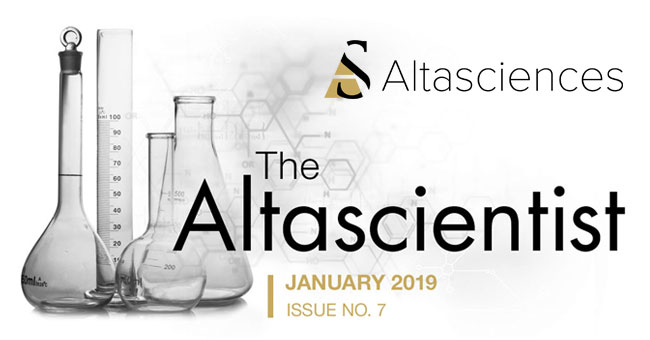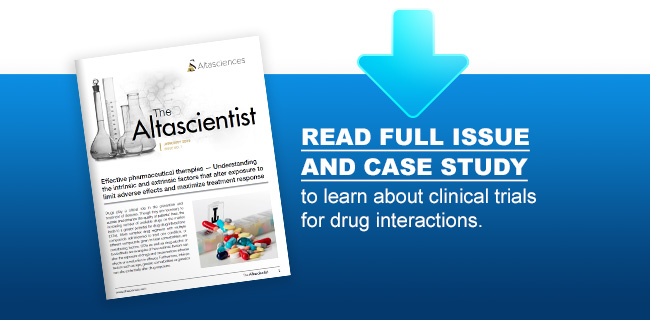Driving Simulation
With the finalization of the FDA guidance in 2017, driving simulation studies are now required for any drug that may affect cognition. Driving simulation studies are the ideal way to collect data required for the drug label when pre- and early clinical studies show that a drug may cause somnolence or impair cognition. Our experts can design and conduct driving simulation studies to efficiently determine the extent and duration of driving ability impairment.
At Altasciences, we design driving studies to achieve your objectives, leveraging extensive experience across clinical testing of cognitive effects. We partner with Cognitive Research Corporation to use their proprietary driving simulators, nine of which are permanently installed in our clinic. We have performed well over 10,000 simulated drives to date, analyzing the impairment seen at peak exposure and/or the effect seen the morning after evening dosing.
We have a suite of ten simulators on site at our clinical facilities, with space for more than 20 additional, as needed. Professional oversight is provided by fully-certified, in-house driving simulation study specialists.
Consult our general Driving Simulation Fact Sheet
Case Study
Contributed to the market approval of Addyi (flibanserin), a novel, non-hormonal, multifunctional serotonin agonist antagonist (MSAA) for the treatment of hypoactive sexual desire disorder in premenopausal women.
Proof of Concept (POC)
Our comprehensive, integrated proof of concept (POC) study services help you achieve your critical milestones faster. Our experts in the design and conduct of phase I clinical trials will deliver your clinical research efficiently, effectively, and on time. With the research support of regulatory experts, bioanalytical scientists, experienced biostatisticians and medical writing teams, you can trust Altasciences with your POC studies. Proof-of-concept studies present unique challenges in both design and conduct. Working with a CRO skilled in both is vital for the success of your Phase I clinical trial program. Altasciences has designed and conducted a wide range of FIH and stand-alone proof of concept clinical trials.
Consult our NDA-Enabling Fact Sheet
Proof of Concept (POC) Study Conduct Expertise
Our clinical pharmacologists perform background research, and consult with research specialists, to ensure we craft the ideal design to meet your objectives, including collaborating with our preclinical colleagues to select the models or biomarkers that translate from preclinical to clinical. Our clinical trial teams capture the endpoints in a consistent manner, training our staff to administer both objective and subjective proof of concept study tests in the exact same way. We also carefully educate participants in what is expected of them during a Phase I clinical trial.
We routinely perform POC clinical research in healthy participants, and leverage our access to a wide range of patient populations for indications that do not have models appropriate in healthy participants. Prior to starting a proof of concept study, our recruiting department produces an accurate estimate of recruitment numbers and timelines. For some indications, we can recruit a large number of patients (i.e., more than 50 patients in areas like diabetes, obesity, and osteoarthritis), while in others, we conduct POC research with smaller groups.
A must-read case study on drug-drug interactions in our latest issue of The Altascientist
December 2018
 |
|
|
|
|
Altasciences offers:
|
|
|
Demonstrated Expertise
|
|
|
Data Management
|
|
|
Up Close and Personal with Ingrid Holmes
Ingrid joined Altasciences in 2011, as Vice President of Clinical Operations at the Montreal site, a facility currently housing seven clinical units with 265 beds, and dedicated
Altasciences Contributes to Positive Top-Line Phase I Results for Chronic Cough Drug Candidate
LAVAL, QC, Canada (December 12, 2018) — Altasciences recently completed an important First-in-Human (FIH), Phase I, integrated adaptive clinical trial, including single and multiple ascending doses (SAD and MAD), Project Management, Bioanalysis, and Medical Writing, for sponsor Bellus Health.
Altasciences’ contributions to the positive top-line results were significant. From recruitment of 90 subjects to management of all relevant aspects of this important FIH trial, Altasciences used a flexible and adaptive approach to fully meet the client’s needs. Altasciences’ contributions allowed Bellus Health to make a well-informed decision to proceed with their promising drug candidate for chronic cough.
“We awarded this trial to Altasciences based on their reputation for quality, speed and efficiency, and we were not disappointed. Thanks to their great efforts, we have been able to determine that our compound is safe and well-tolerated, and we are proceeding to the next stage of development without delay. Altasciences’ ability to deliver results efficiently helped us make important decisions to move ahead,” says Dr. Denis Garceau, Senior Vice President, Drug Development, at Bellus Health.
Altasciences conducts hundreds of early phase clinical trials annually. Their vast participant database permits rapid recruitment, and they are constantly refining their processes and offerings to better meet sponsor needs.
“We are very proud of our work on novel compounds at Altasciences, and the fact that we’re able to deliver results in a timely, efficient manner that meets or exceeds our sponsors’ drug development timelines.” says Ingrid Holmes, Vice President, Global Clinical Operations, for Altasciences.
About Altasciences
Altasciences is an integrated drug development solution company offering pharmaceutical and biotechnology companies a proven, flexible approach to preclinical and clinical pharmacology studies, including formulation, manufacturing, and analytical services. For over 25 years, Altasciences has been partnering with sponsors to help support educated, faster, and more complete early drug development decisions. Altasciences’ integrated, full-service solutions include preclinical safety testing, clinical pharmacology and proof of concept, bioanalysis, program management, medical writing, biostatistics, clinical monitoring, and data management, all customizable to specific sponsor requirements. Altasciences helps sponsors get better drugs to the people who need them, faster.
For more information
Julie-Ann Cabana
jcabana@altasciences.com
913 304-4505


